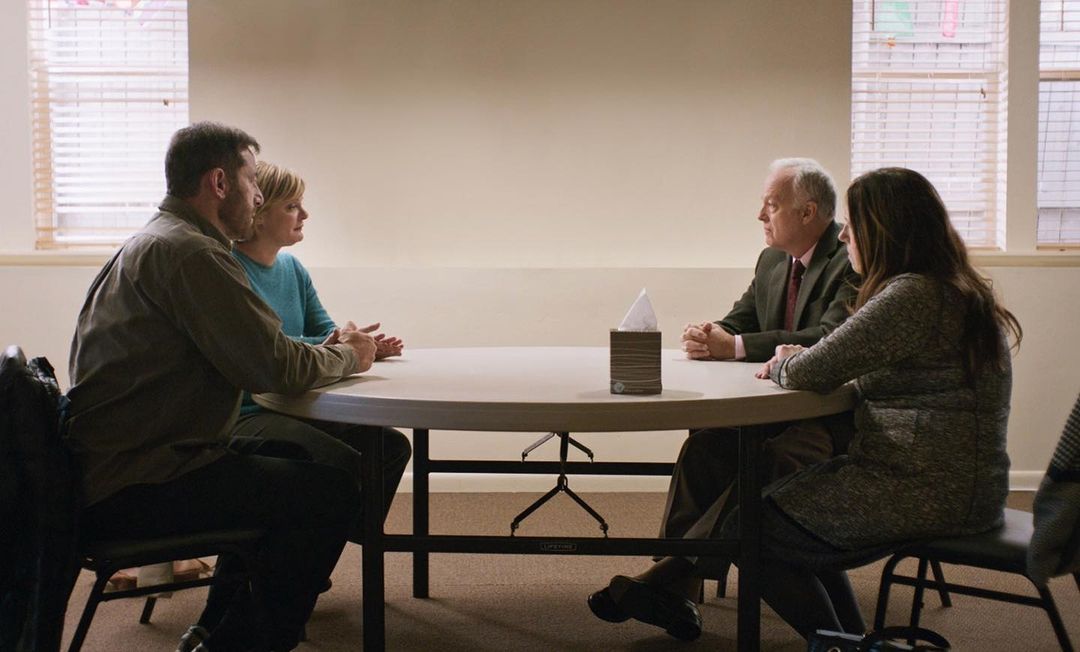Mass
by George Wolf
Jay and Gail (Jason Isaacs and Martha Plimpton) arrive at a local church, both uneasy about their planned meeting with Linda and Richard (Ann Dowd and Reed Birney). While the choir practices upstairs, a room has been reserved for the couples to talk.
There is a small table with four chairs. There is water. And there are tissues.
An unthinkable tragedy has connected these four people for life, and veteran actor Fran Kranz explores their journey of healing with a gently assured filmmaking debut full of shattering emotion.
Yes, you will need some of those tissues, too. But Kranz’s touch is so perfect, and the characterizations so real, that you never feel preached to, even with a large crucifix dominating the room.
The four actors are raw and touching, each exploring different levels of anger, blame, guilt and forgiveness. Writer/director Kranz gives Gail the most complete journey, and Plimpton realizes it with an award-worthy turn, while Dowd finds the subtle grace in a final confession that could have easily turned overwrought.
Mass is a spare chamber piece that makes sure nothing comes easy. You hang on every word, afraid to intrude on this intimate pain yet welcoming the invitation. With insightful writing, superb performances and unassuming direction, it’s a cathartic film that deconstructs an all too common tragedy with overdue honesty.






